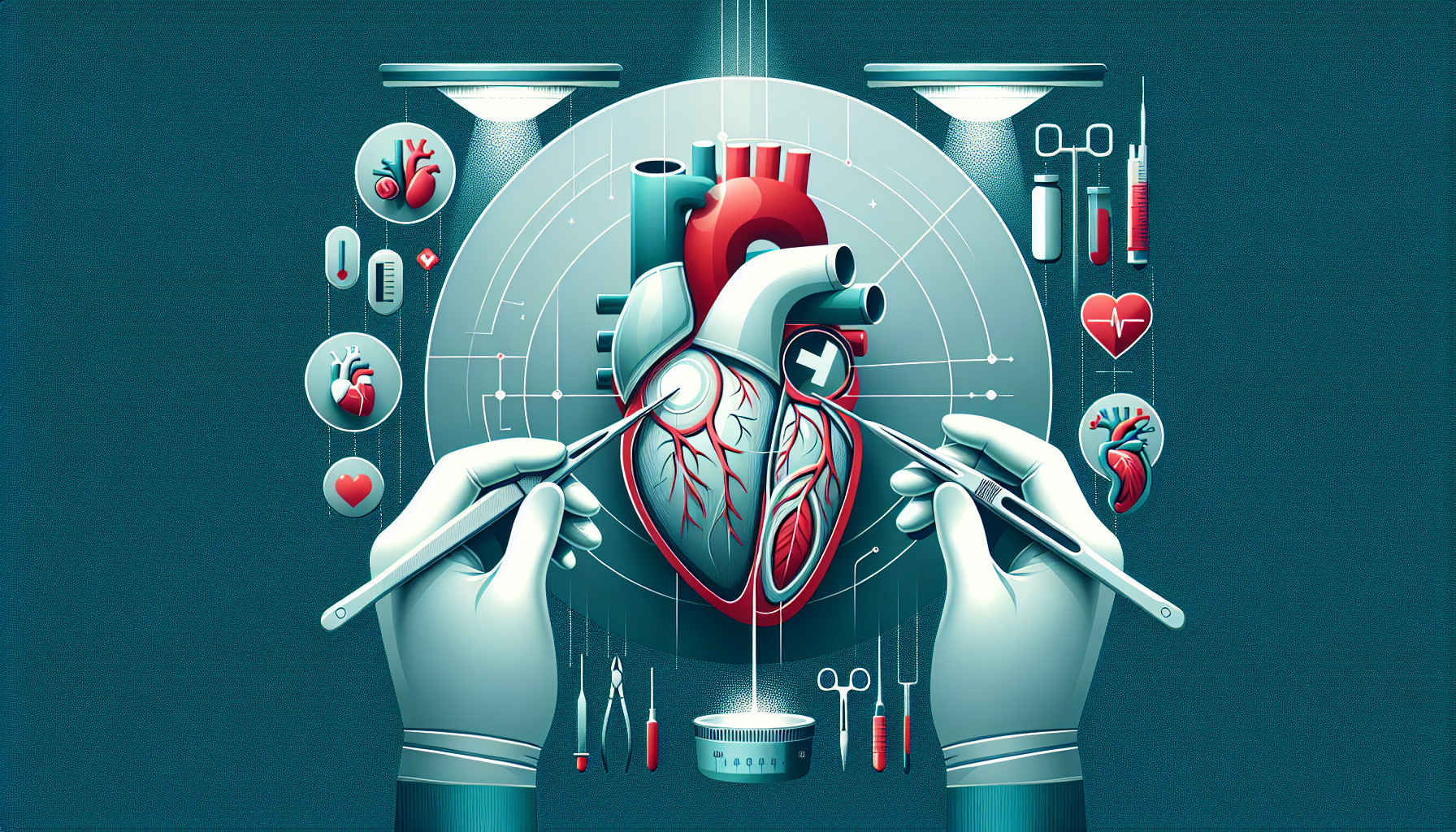Our Summary
This study investigated whether bioprosthetic (made from animal or human tissue) mitral valve replacements are still a good option for children. To do this, they compared how long these valves lasted, and whether they helped kids avoid needing a heart transplant, to mechanical (man-made material) mitral valve replacements. They looked at kids who had these surgeries from 1981 to 2020.
They found that kids who had the bioprosthetic valve were about the same age as kids who had the mechanical valve (around 3-4 years old). Seven years after the surgery, about 18% of kids with the bioprosthetic valve had either died or needed a heart transplant, compared to about 29% of the kids with the mechanical valve. However, about 64% of the bioprosthetic valves had to be replaced, compared to only about 11% of the mechanical valves.
After 15 years, about 34% of kids with mechanical valves had died or needed a heart transplant, and about 41% needed their valve replaced. The main reason the mechanical valves needed to be replaced was that the child had outgrown them.
In conclusion, there wasn’t a difference in survival rates between the two types of valves. However, the bioprosthetic valves didn’t last as long because they became calcified, or hardened. After 15 years, about 40% of the mechanical valves needed replacement, mainly because the child had grown too much for the valve.
FAQs
- Are bioprosthetic mitral valve replacements a good option for children?
- What is the survival rate for children who have bioprosthetic and mechanical mitral valve replacements?
- Why do mechanical valves need to be replaced in children after valve replacement surgery?
Doctor’s Tip
A doctor might advise a patient undergoing valve replacement surgery to discuss with their healthcare provider the pros and cons of bioprosthetic versus mechanical valves, considering factors such as age, lifestyle, and the need for future surgeries. It is important for patients to be aware of the potential need for valve replacement in the future and to have regular follow-up appointments to monitor the function of the valve. Additionally, patients should be educated on the signs and symptoms of valve failure and seek medical attention if they experience any concerning symptoms.
Suitable For
Patients who are typically recommended valve replacement include those with severe valve disease, such as stenosis (narrowing) or regurgitation (leaking) of the valve, which can lead to symptoms such as shortness of breath, fatigue, chest pain, and heart palpitations. In the case of children, congenital heart defects or acquired valve disease may necessitate valve replacement. Additionally, patients with a history of infective endocarditis, valve degeneration, or failed previous valve repair may also require valve replacement. Ultimately, the decision to undergo valve replacement is made on a case-by-case basis by a cardiologist or cardiac surgeon after considering the patient’s individual health status and needs.
Timeline
Overall, before valve replacement, the patient may experience symptoms such as shortness of breath, chest pain, fatigue, and dizziness due to a malfunctioning heart valve. They would undergo various tests such as echocardiograms, cardiac catheterization, and MRI to determine the severity of the valve disease.
After valve replacement surgery, the patient would typically spend a few days in the hospital for recovery, where they would be monitored closely for any complications. They would then gradually start rehabilitation and physical therapy to regain strength and function. Follow-up appointments with the surgeon and cardiologist would be scheduled to monitor the valve function and overall heart health.
In the long term, the patient would need to take medications to prevent blood clots and infection, as well as adopt a healthy lifestyle with regular exercise and a balanced diet. Regular check-ups and imaging tests would be done to ensure the valve replacement is functioning properly. In some cases, the valve may need to be replaced again due to wear and tear or other complications.
What to Ask Your Doctor
Some questions a patient should ask their doctor about valve replacement include:
- What type of valve replacement (bioprosthetic or mechanical) is recommended for my specific situation?
- What are the potential risks and benefits of each type of valve replacement?
- How long can I expect the bioprosthetic valve to last compared to the mechanical valve?
- What factors should I consider when choosing between a bioprosthetic or mechanical valve?
- How often will I need follow-up appointments and monitoring after the valve replacement surgery?
- What lifestyle changes or restrictions should I be aware of after the surgery?
- How will the type of valve replacement impact my quality of life in the long term?
- What is the likelihood of needing a valve replacement in the future if I choose a bioprosthetic valve?
- Are there any specific factors in my medical history that may influence the choice of valve replacement?
- How will the type of valve replacement impact my recovery time and overall prognosis?
Reference
Authors: Van Puyvelde J, Meyns B, Rega F, Gewillig M, Eyskens B, Heying R, Cools B, Salaets T, Hellings PW, Meuris B. Journal: Interdiscip Cardiovasc Thorac Surg. 2024 Mar 5;38(3):ivae034. doi: 10.1093/icvts/ivae034. PMID: 38447197
